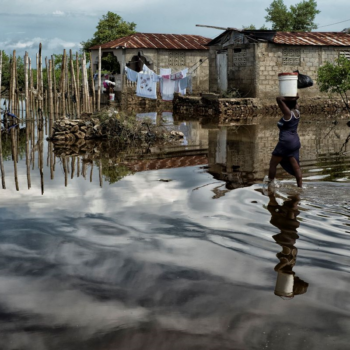Today’s Climate Strike sends a strong message to the countries gathering at the UN that the world’s citizens are calling for rapid and meaningful action on climate change. Among other announcements the European Union is expected to announce a new International Platform on Sustainable Finance which will enable countries to share approaches to regulatory reform. With so many initiatives already in train, does the world need another international initiative on sustainable finance?
From a European perspective, however, the announcement sends a strong signal of intent. The new Commission President has put the climate transition, including strong financial measures that will drive it, at the heart of her brand. Two of her three new Executive Vice-Presidents have key roles, with Frans Timmermans leading on climate action and Valdis Dombrovskis charged both with creating a new green financing strategy and with helping to ensure that by 2025 half of the European Investment Bank’s total finance should be dedicated to climate investment.
Alongside domestic ambition sits an understanding that Europe has a world-leading role both in driving the climate transition and in setting the new financial rules that will fund it. A new Platform will signal that Europe is embracing this role of using soft power to drive financial reform globally, one of the key finance priorities that E3G has proposed for Europe’s 2050 Agenda. With a strong focus on public finance regulation the Platform has the potential to be complementary to the Coalition of Finance Ministers for Climate Action which is taking a similar approach to greening public finance.
Other announcements on international finance are expected to include pledges for replenishment of the Green Climate Fund and action from Multilateral Development Banks including new actions on climate finance and leveraging private sector finance, and an update on their joint efforts to align their finances with the Paris Agreement.
Collaboration on climate between the world’s major MDBs is important, but many differences of approach still remain – for example not all banks have accepted that new gas infrastructure is not compatible with climate targets, although the EIB energy lending policy currently under discussion by its Board is setting a leading example to others by proposing to phase out lending to fossil fuel projects by the end of 2020. In the run-up to the Summit the Secretary-General called for an end to new coal generation, which is now becoming uneconomic in many locations. This call has been heeded by the EIB although some of Asia’s public finance institutions have not yet responded.
We expect to see further financial actions under the resilience theme. Following the hard-hitting report of the Global Commission on Adaptation it will be up to the UK to send a message that business as usual is no longer an option, and that new public and private actions on finance for resilience will be required to keep the world climate safe. We expect to see a range of specific measures announced to meet this challenge.
The Secretary-General’s Summit may not reduce the dizzying number of sustainable finance initiatives but it should set a quality standard and a benchmark for judging their effectiveness. E3G will be hosting a side event at the upcoming World Bank Autumn Meetings on this very topic. Between the strong statements made by the Secretary-General himself and the loud calls from beyond the official conference hall, we are left in no doubt that sustainable finance initiatives are only meaningful if they are working together to achieve the transition we need at the required scale and pace.


